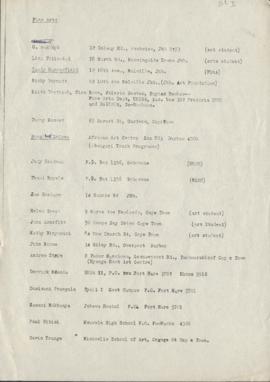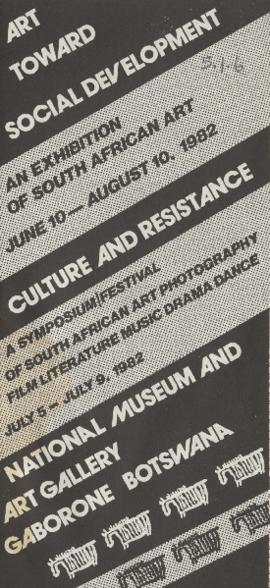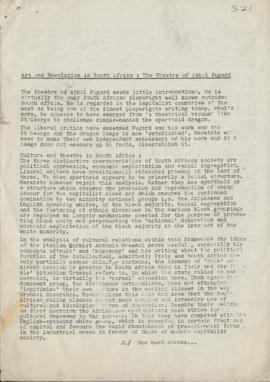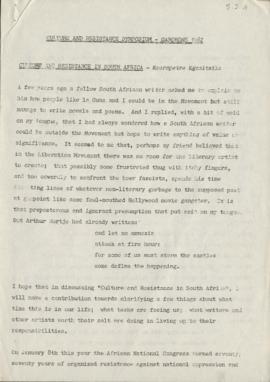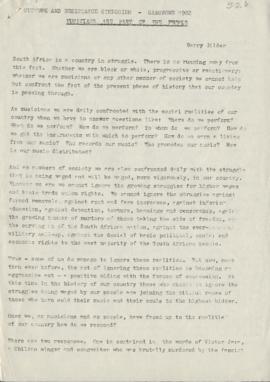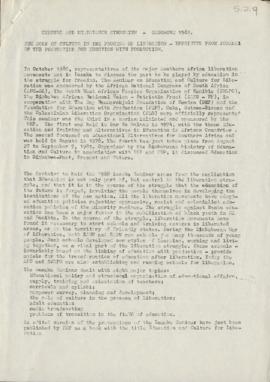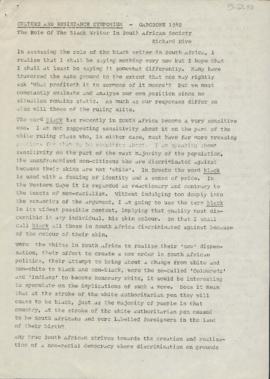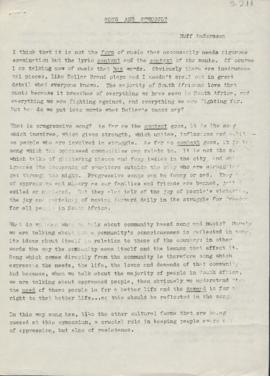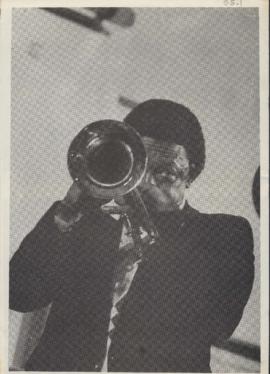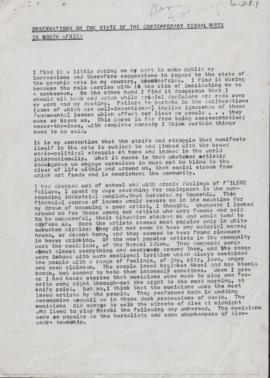In this paper, Barry Gilder argues that it is impossible for musicians to be separate from the struggle against Apartheid in South Africa. He suggests that musicians have two options; to be part of the struggle against Apartheid as "revolutionaries who make music" or as musicians who participate in the "revolution as musicians". Musicians can fight Apartheid through holding benefit concerts, creating their own record labels, organising into a collective musical organisation and boycotting the Apartheid state. These methods of resistance and artistic expression, the author argues, will all contribute to a necessary and genuinely popular and progressive musical culture.

